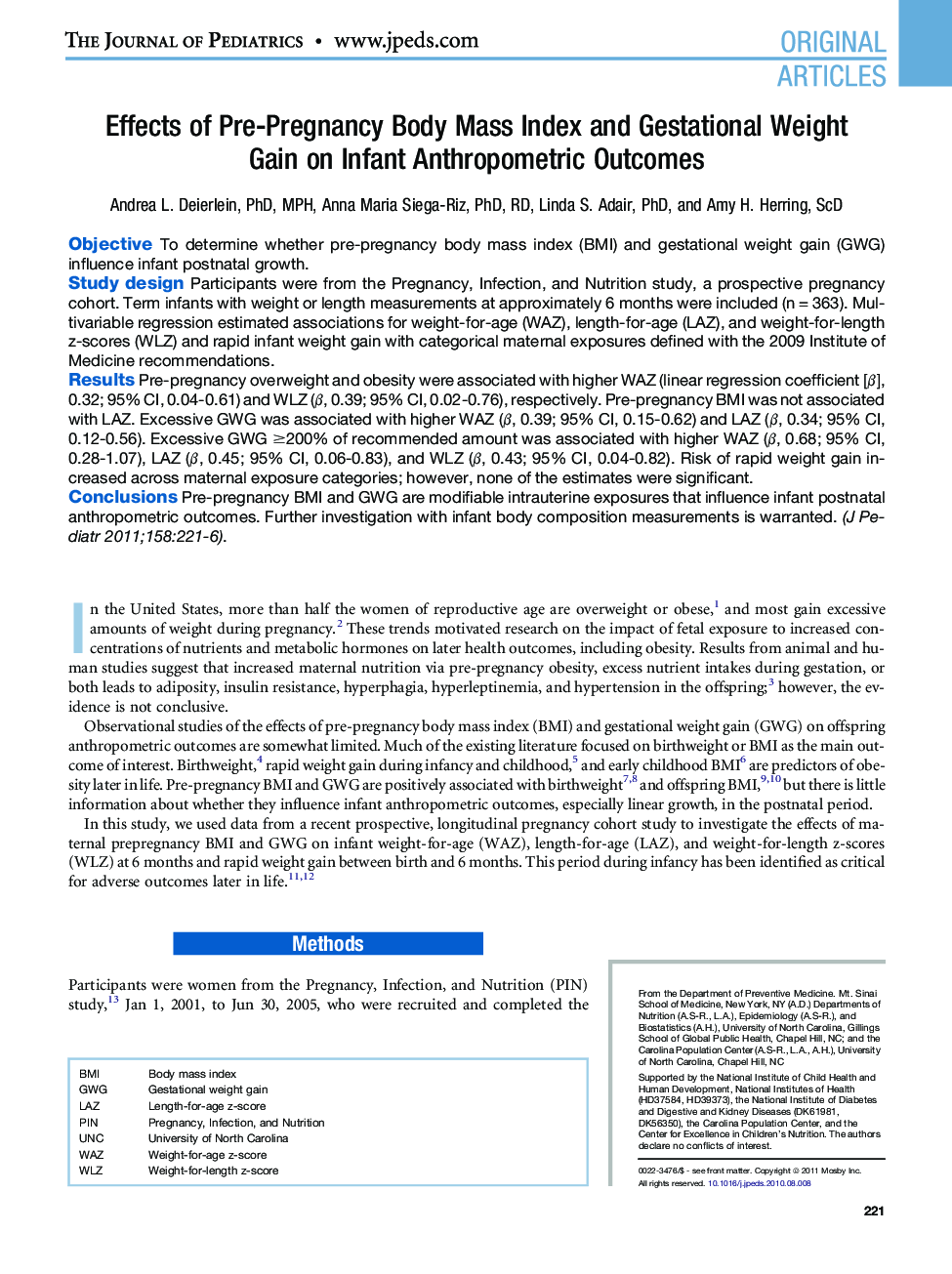| Article ID | Journal | Published Year | Pages | File Type |
|---|---|---|---|---|
| 6225564 | The Journal of Pediatrics | 2011 | 6 Pages |
ObjectiveTo determine whether pre-pregnancy body mass index (BMI) and gestational weight gain (GWG) influence infant postnatal growth.Study designParticipants were from the Pregnancy, Infection, and Nutrition study, a prospective pregnancy cohort. Term infants with weight or length measurements at approximately 6 months were included (n = 363). Multivariable regression estimated associations for weight-for-age (WAZ), length-for-age (LAZ), and weight-for-length z-scores (WLZ) and rapid infant weight gain with categorical maternal exposures defined with the 2009 Institute of Medicine recommendations.ResultsPre-pregnancy overweight and obesity were associated with higher WAZ (linear regression coefficient [β], 0.32; 95% CI, 0.04-0.61) and WLZ (β, 0.39; 95% CI, 0.02-0.76), respectively. Pre-pregnancy BMI was not associated with LAZ. Excessive GWG was associated with higher WAZ (β, 0.39; 95% CI, 0.15-0.62) and LAZ (β, 0.34; 95% CI, 0.12-0.56). Excessive GWG â¥200% of recommended amount was associated with higher WAZ (β, 0.68; 95% CI, 0.28-1.07), LAZ (β, 0.45; 95% CI, 0.06-0.83), and WLZ (β, 0.43; 95% CI, 0.04-0.82). Risk of rapid weight gain increased across maternal exposure categories; however, none of the estimates were significant.ConclusionsPre-pregnancy BMI and GWG are modifiable intrauterine exposures that influence infant postnatal anthropometric outcomes. Further investigation with infant body composition measurements is warranted.
